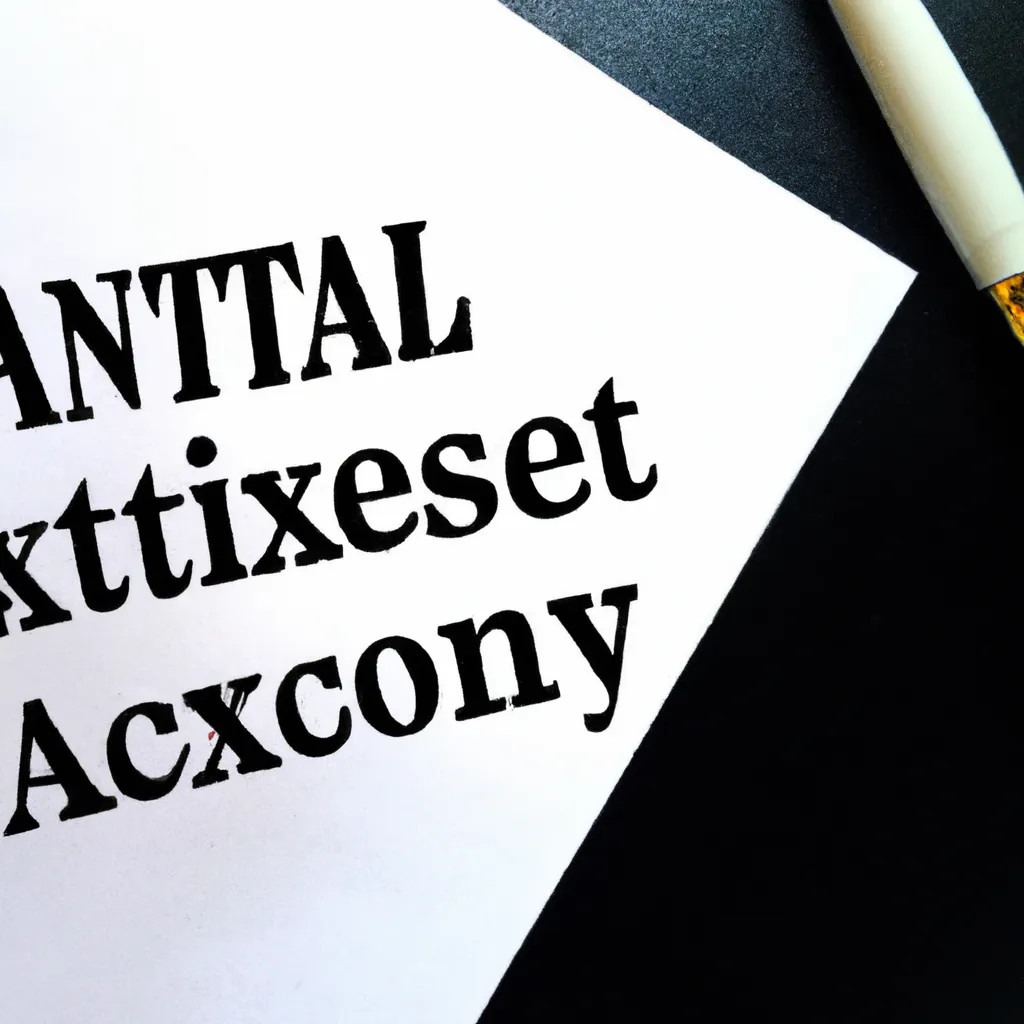Are you looking for expert accounting services to help manage your inheritance tax in London. Look no further than our professional team. Inheritance taxes can be a complex and overwhelming aspect of managing your financial inheritance. Our expert accounting services in London have the skills and knowledge to navigate these complexities, ensuring that your tax obligations are fulfilled accurately and efficiently.
Don't leave your inheritance tax to chance, trust in our team of experienced accountants to handle the process for you. With years of experience and a proven track record of successfully managing inheritance taxes, our services are reliable and trustworthy. Contact us today to learn more about how we can assist you with your inheritance tax needs.

Overview of inheritance tax in london
Inheritance tax is a government-imposed tax that is collected on the transfer of assets or estates after a person's death. This tax is applicable in most countries, including the united kingdom, where it is commonly referred to as death duty. In london, inheritance tax is paid by individuals who inherit assets from a deceased person, including money, property, and investments.
The basics of inheritance tax
Inheritance tax is calculated based on the total value of an individual's estate. An estate comprises all of the assets and liabilities left behind by a person after their death. These assets can include property, cash, investments, and personal possessions.
As of 2021, inheritance tax is charged at a rate of 40% on any estate value above £325,000. This threshold is known as the nil-rate band and is set by the government. Estates valued at or below this amount are not subject to inheritance tax.
Who is responsible for paying inheritance tax?
The executor of the deceased individual's estate is responsible for paying any inheritance tax due. This executor is typically named in the will of the deceased person. In the absence of an executor, the responsibility falls on the administrator of the estate.
In some cases, a deceased person may have designated a trust to manage their assets after their death. In this scenario, the trustees of the trust are responsible for paying any inheritance tax due.
Inheritance tax vs. Capital gains tax
It's essential to understand the difference between inheritance tax and capital gains tax, as they can both apply to inherited assets.
Inheritance tax is calculated based on the total value of an estate and is paid by the beneficiaries who inherit the assets. On the other hand, capital gains tax is calculated based on the increase in an asset's value from the time it was inherited until the time it was sold. This tax is paid by the person who sells the asset.
Accounting periods and inheritance tax
An accounting period is a period of time for which a person's financial records are prepared and for which tax is calculated. When it comes to inheritance tax, the typical accounting period is the 12 months leading up to the date of the deceased person's death.
However, in some cases, the executor or administrator may choose to extend this period up to two years if it helps to reduce the inheritance tax bill. This is known as the ‘appropriate time' extension and is often used in cases where the estate includes a business or property that needs to be sold.
It's important to note that if an extension is granted, interest will be charged on the unpaid inheritance tax amount for the duration of the extension period.
In summary, inheritance tax is an important consideration for anyone who plans to leave an estate behind for their loved ones. By understanding the basics of inheritance tax and how it's calculated, individuals can take steps to minimize their tax liability and ensure their assets are passed on to their beneficiaries as smoothly as possible.
If you have recently inherited assets in london or if you are preparing your estate for the future, it's always best to seek professional advice from a tax accountant or estate planner. They can guide you through the inheritance tax process and help you make the necessary preparations to protect your assets.

Ensuring accuracy: the importance of proper accounting
Proper accounting is essential in every aspect of business and financial management. Inheritance tax matters are no exception. The intricate nature of inheritance tax calculations requires expert knowledge and precision to ensure accuracy and compliance with hm revenue and customs (hmrc) regulations. This is why hiring a professional accountant for inheritance tax matters is highly beneficial.
The benefits of hiring an expert accountant for inheritance tax matters
When dealing with inheritance tax, it is crucial to have a thorough understanding of the complex tax laws and regulations. A simple error in calculations or recording could result in a hefty fine from hmrc. This is where an experienced and knowledgeable accountant can make a significant difference.
An expert accountant specializing in inheritance tax matters can guide you through the process and offer valuable advice on reducing the tax burden on your loved ones. They are also well-versed in the various exemptions and reliefs available for inheritance tax, ensuring that you benefit from every possible tax-saving opportunity.
Additionally, professional accountants are sworn to confidentiality and have strict ethical standards to uphold. This ensures that all your financial information is kept confidential, providing you with peace of mind.
Why an accrual basis of accounting is preferred for inheritance tax calculations
There are two main methods of accounting – cash basis and accrual basis. When it comes to inheritance tax calculations, an accrual basis of accounting is preferred. This method records income when earned and expenses when incurred, providing a more accurate representation of the entity's financial position.
Inheritance tax is calculated based on the value of the assets held by the deceased at the time of their death. Using cash basis accounting, the assets will only be recognized when the funds are received, which could result in an inaccurate valuation. Accrual basis accounting, on the other hand, takes into account all assets and liabilities at the time of death, providing a more accurate assessment for inheritance tax purposes.
How to properly track and record accounts receivable for inheritance tax purposes
Inheritance tax is payable within six months of the date of the deceased's death. During this time, it is essential to properly track and record all accounts receivable to ensure accuracy in inheritance tax calculations.
Accounts receivable refer to the money owed to the deceased at the time of their death. If not carefully tracked and recorded, these receivables may be missed in the inheritance tax calculation and result in an underpayment of tax.
To properly track and record accounts receivable, it is essential to maintain accurate records of all outstanding invoices and payments received. This can be done by regularly reconciling bank statements, keeping track of all received payments, and updating the accounts receivable ledger. Seeking the assistance of an expert accountant can also be beneficial in this process.
Proper accounting and record-keeping are crucial when it comes to inheritance tax matters. Hiring an expert accountant, using accrual basis accounting, and properly tracking and recording accounts receivable can help ensure accuracy and compliance with hmrc regulations. This not only benefits your loved ones but also provides you with peace of mind knowing that your financial affairs are in order.

Maximizing savings: strategies for minimizing inheritance tax
Exploring legal methods for reducing inheritance tax liability
Inheritance tax, also known as estate tax, can be a significant financial burden on your loved ones after you pass away. This tax is typically calculated based on the total value of your estate, including all assets such as property, investments, and personal belongings. In london, inheritance tax is currently set at a rate of 40% on estates valued above £325,000. With rising property prices and other assets, many individuals are concerned about their potential inheritance tax liability and are looking for ways to minimize it.
If you want to ensure that your loved ones receive the maximum amount of your estate without being heavily taxed, it's essential to take a proactive approach in planning for inheritance tax. In this article, we will discuss some legal strategies that can help minimize your inheritance tax liability and provide a better financial future for your family.
The importance of proactive planning
One crucial factor in successfully minimizing inheritance tax liability is taking a proactive approach and planning ahead. By waiting until the last minute, you limit your options and may not be able to take advantage of certain exemptions or reliefs that could ultimately save your family thousands or even hundreds of thousands of pounds in tax.
One strategy to consider is making gifts during your lifetime. Currently, gifts made more than seven years before your death are not subject to inheritance tax. By gifting assets or money to your loved ones while you are still alive, you can reduce the value of your estate and potentially lower your tax liability.
Another important aspect of proactive planning is keeping up-to-date records of all your assets and their values. This will make it easier for your beneficiaries to calculate the value of your estate and ensure that no assets or deductions are missed when it comes time to pay inheritance tax.
Available exemptions and reliefs
There are various exemptions and reliefs available that can help reduce your inheritance tax liability. Some of the most common include:
- spouse or civil partner exemption: If you leave your estate to your spouse or civil partner, it is entirely exempt from inheritance tax, regardless of its value.
- annual exemption: Each year, you can gift up to £3,000 without being subject to inheritance tax. This allowance can also be carried forward for one year, allowing you to gift up to £6,000 in one tax year.
- small gift exemption: You can make small gifts of up to £250 to any number of people without being subject to inheritance tax.
- business property relief: If you own a business or shares in a business, you may be eligible for business property relief, which can exempt your estate from inheritance tax entirely or reduce the amount owed.
- agricultural property relief: Similar to business property relief, if you have agricultural property, this relief can exempt your estate from inheritance tax or reduce the amount owed.
Working with an experienced accountant is crucial in understanding these exemptions and reliefs and how they apply to your specific situation. They can help create a tailored plan for your estate to ensure that you take full advantage of all available options.
Creating a long-term inheritance tax plan
When it comes to inheritance tax, taking a long-term approach is key. By having a comprehensive plan in place, you can maximize your savings and minimize your tax liability over time. This approach involves regularly reviewing and updating your plan as your financial situation changes, taking advantage of exemptions and reliefs, and making any necessary adjustments to your gifting strategy.
It's also crucial to keep in mind the accounting period for inheritance tax, which runs from april of one year to april of the following year. By understanding this timeframe, you can plan ahead and make any necessary gifts before the end of the accounting period to take advantage of the annual exemption.
Inheritance tax is a complex and often overwhelming subject for many, but by taking a proactive approach and working with an experienced accountant, you can minimize your tax liability and ensure that your loved ones receive the maximum value of your estate. Remember to keep up-to-date records, take advantage of available exemptions and reliefs, and have a long-term plan in place to maximize your savings and provide financial security for your family's future.
Expert accounting services for inheritance tax in london
An inheritance tax, also known as an estate tax, is a tax imposed on the assets or money inherited by an individual from someone who has passed away. In london alone, inheritance taxes often make up a significant portion of one's overall tax burden. Navigating the complexities and ever-changing laws surrounding inheritance taxes can be a daunting and time-consuming task. That's where expert accounting services come in.
Highlighting the benefits of working with an experienced, london-based accounting firm for inheritance tax matters
Handling inheritance tax can be a complicated process, and it's vital to have a trusted advisor on your side. By working with an experienced, london-based accounting firm, you can benefit from their in-depth knowledge and expertise in all matters related to inheritance tax.
At our firm, we have a team of experienced accountants who specialize in inheritance tax. We understand the intricacies of tax laws and regulations, and we stay up-to-date with any changes to ensure that your tax strategy is always compliant. Our expertise allows us to accurately assess your tax liabilities and devise a plan to minimize them, saving you both time and money in the long run.
Reliability and accuracy of our accounting services
One of the biggest advantages of working with our london-based accounting firm for inheritance tax matters is the reliability and accuracy of our services. Our team is highly experienced and well-versed in all areas of inheritance tax, ensuring that all of your tax obligations are met efficiently and effectively.
We understand that tax planning for inheritance can be a sensitive subject, and we handle all matters with discretion and professionalism. We will work closely with you to understand your unique circumstances and tailor a tax plan that meets your specific needs and goals.
How we stay up-to-date on changing tax laws and regulations
Tax laws and regulations are constantly evolving, and it can be challenging for individuals to keep up with all the changes. As an experienced accounting firm in london, we make it our priority to stay informed and up-to-date on any changes that may affect our clients.
We regularly attend training sessions and workshops to keep abreast of any changes in tax laws and regulations, ensuring that our clients receive the most current and accurate advice. This allows us to stay ahead of the curve and provide our clients with the most effective tax planning strategies.
How we can save you time, stress, and money by handling all of your inheritance tax needs
Not only can working with our london-based accounting firm save you time and stress, but it can also save you money. By outsourcing your inheritance tax needs to us, you can focus on more important matters while we handle all the complicated tax calculations and paperwork.
With our expertise and knowledge, we can ensure that you are taking advantage of any available tax exemptions or reliefs, minimizing your overall tax burden. We can also assist in completing and filing your tax returns accurately and on time, avoiding any potential penalties or fines.
In summary, inheritance tax can be a complicated and overwhelming matter, but it doesn't have to be when you have an experienced accounting firm on your side. With our expertise, reliability, and dedication, we can help you navigate the complexities of inheritance tax in london and ensure that you are complying with all tax laws and regulations. Save yourself time, stress, and money by enlisting our expert accounting services for all your inheritance tax needs.

